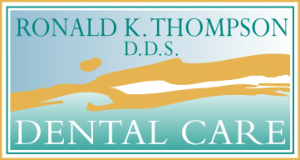Gum disease, also called periodontal disease, is a very common ailment with different symptoms and stages. In some cases, periodontal disease is quite minor, nothing more than inflammation of the gums. In other cases, however, gum disease can be very serious, resulting in tooth loss and damage to the soft tissue and bones that support the teeth. To prevent gum disease or to keep it from getting worse, it is important to be proactive about your dental care. Understanding the risk factors of gum disease can help you take action to preserve your health.
Illnesses And Medications
There is a distinct connection between oral health and many systematic diseases so it is imperative to discuss any health conditions with your dentist. If you have diabetes, high blood pressure, AIDS, or other systemic disease that make you more susceptible to infection or inflammation, you’re more likely to develop gum disease. If health conditions or put you at risk of gum disease, you can work proactively to reduce their impact by scheduling frequent dental exams and brushing and flossing often. Additionally, if you’re taking a medication that reduces saliva to create dry mouth conditions, you are at a greater risk of developing gum disease. (Saliva is a protective barrier against infection, so a saliva deficiency leaves your mouth at risk.) Certain medications affect the overgrowth of gum tissue making hygiene efforts more difficult. Be sure to keep informed by asking your doctor if periodontal disease, dry mouth, or any other oral ailment is related to your existing health conditions and medications.
Genes And Hormones
If you have family members with severe gum disease, you might also be at risk. Because of genetic factors, some people are simply more likely to develop gum disease than others. If your genes predispose you to periodontal disease, taking preventative action can help you to reduce that risk.
In addition to genes, changing hormones in girls and women can put them at risk of gum disease during puberty, pregnancy, menopause, and other times when they experience these significant changes. Being prepared for these changes by scheduling extra dental appointments can help you avoid the gum disease bug!
Smoking
Smoking not only increases your risk of contracting gum disease, but it also prevents many typically effective treatments. Talk to your doctor or dentist right away to get tips for smoking cessation
Whether it is mild or severe, gum disease can have a negative impact on your oral and overall health. Learning whether you are at risk of gum disease and taking proactive steps to reduce your risk can help you live a healthier life.
Contact East Valley Dental Care, a Mesa dental office to schedule an appointment for a cleaning and consultation.





